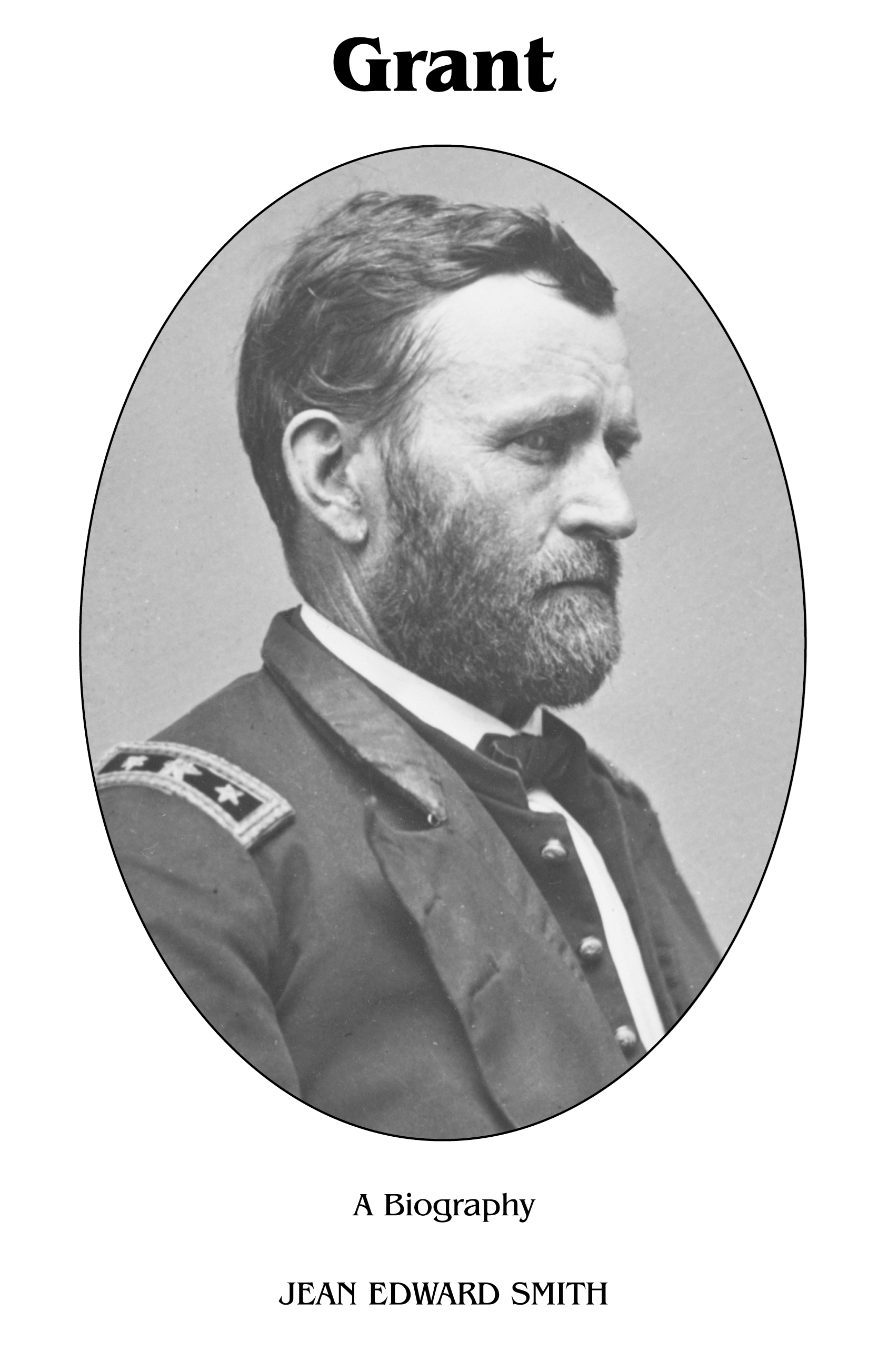GRANT: A BIOGRAPHY
by Jean Edward Smith
ISBN 978-0-945707-42-4 $37.50
781 pages including notes, bibliography, and index.
Grant's reputation as a general has steadily improved in the past quarter-century,
and the preceding decade has seen reevaluation of a presidency previously dismissed
as an eight-year disaster. Smith integrates Grant's career and achievements in what
is by far the best comprehensive biography to date of a man who remains an enigma.
A West Pointer who disliked the army enough to resign from it in 1854, Grant
failed unobtrusively at every civilian enterprise he attempted. His return to arms in
1861 was marked by no spectacular triumphs. Instead, from Shiloh through
Vicksburg to Chattanooga, he established himself as the North's best general by a
combination of flexibility, resilience and determination. Lee's unconditional surrender
was accompanied by Grant's de facto pardon of the defeated army, and Smith
persuasively interprets this as an early turning point of Reconstruction, preventing
Northern reprisals that might have left the nation permanently divided emotionally.
Elected president in 1868, Grant above all sought reconciliation,
and effective use of the army to protect black rights in the South.
Smith makes a strong case that the financial scandals that dogged Grant's second
term reflected individual misfeasance rather than structural malaise - Grant was better
at judging military subordinates than political advisers. His mediation of the
Hayes-Tilden election in 1876 helped avert a national crisis. As a conqueror who was
also a healer of war's wounds, Grant stands with no superiors and few equals, Smith
forcefully argues. From a review in Publisher's Weekly, February 12, 2001.
Ulysses S. Grant was the first four-star general in the history of the United States
Army and the only president between Andrew Jackson and Woodrow Wilson to serve
eight consecutive years in the White House. As general in chief, Grant revolutionized
modern warfare. Rather than capture enemy territory or march on Southern cities, he
concentrated on engaging and defeating the Confederate armies in the field, and he
pursued that strategy relentlessly. As president, he brought stability to the country after
years of war and upheaval. He tried to carry out the policies of Abraham Lincoln, the
man he admired above all others, and to a considerable degree he succeeded. Yet today,
Grant is remembered as a brilliant general but a failed president.



